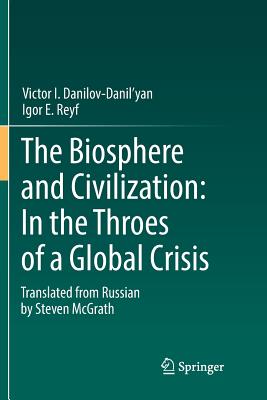Gaia's Web: How Digital Environmentalism Can Combat Climate Change, Restore Biodiversity, Cultivate Empathy, and Regenerate the Ea
Bakker, Karen
- 出版商: MIT
- 出版日期: 2024-04-16
- 售價: $1,270
- 貴賓價: 9.5 折 $1,207
- 語言: 英文
- 頁數: 288
- 裝訂: Hardcover - also called cloth, retail trade, or trade
- ISBN: 0262048752
- ISBN-13: 9780262048750
海外代購書籍(需單獨結帳)
商品描述
A riveting exploration of one of the most important dilemmas of our time: will digital technology accelerate environmental degradation, or could it play a role in ecological regeneration? At the uncanny edge of the scientific frontier, Gaia's Web explores the promise and pitfalls the Digital Age holds for the future of our planet. Instead of the Internet of Things, environmental scientist and tech entrepreneur Karen Bakker asks, why not consider the Internet of Living Things? At the surprising and inspiring confluence of our digital and ecological futures, Bakker explores how the tools of the Digital Age could be mobilized to address our most pressing environmental challenges, from climate change to biodiversity loss. Interspersed with ten elegiac, enigmatic parables, each of which is based on an existing technology, Gaia's Web evokes the conundrums we face as the World Wide Web intertwines with the Web of Life. A new generation of innovators is deploying digital technology to come to the aid of the planet, using spy satellites to track down environmental criminals, inviting animals to the Metaverse, and biohacking Frankenstein-like biobots as environmental sentinels. But will they end up doing more harm than good? In an engaging take on conservation technology, Bakker looks at the digital tech applications to environmental issues from predatory harvesting of environmental data to human bycatch and eco-surveillance capitalism. If we address these issues and mobilize digitally mediated forms of citizen science, she argues, digital tech could help reverse environmental harms and advance environmental sustainability. And in the process, Big Tech might be transformed for the better. With its uniquely broad scope--combining insights from computer science, ecology, engineering, environmental science, and environmental law--Gaia's Web introduces profoundly novel ways of addressing our most pressing environmental challenges--mitigating climate change, protecting endangered species--and creating new possibilities for ecological justice by empowering nonhumans to participate in environmental regulation.
作者簡介
Karen Bakker was a Guggenheim Fellow, a Professor at the University of British Columbia, and the Matina S. Horner Distinguished Visiting Professor at the Radcliffe Institute for Advanced Study at Harvard University. She was the author of The Sounds of Life: How Digital Technology Is Bringing Us Closer to the Worlds of Animals and Plants. She passed away in August 2023.






























